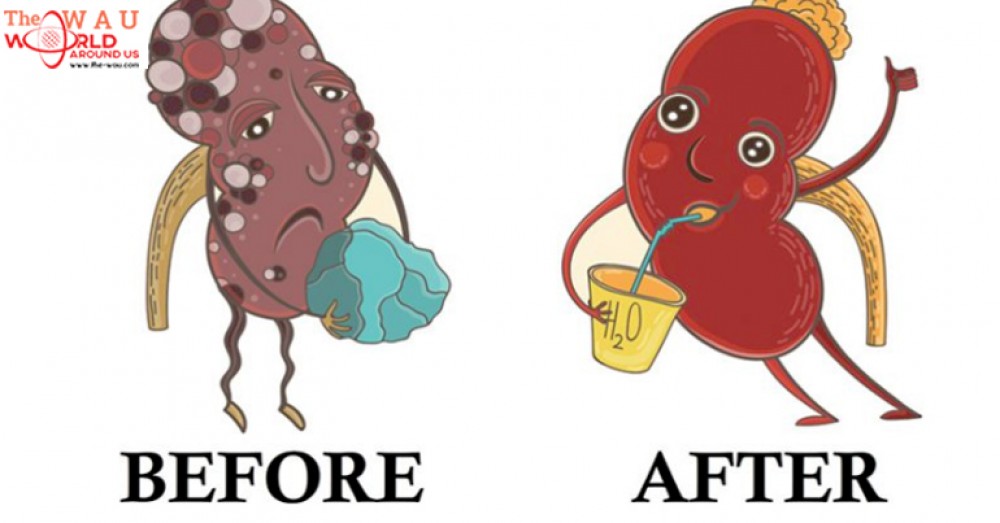We know it to be true that for our bodies to run on their optimal state and be in the best condition possible, we need to have a healthy and balanced diet. Of course, this isn’t new information. What may be surprising to you, though, is that not only is a healthy diet ideal for keeping you from contracting diseases but it also reduces your risks of health problems like developing kidney stones.
There are different types of kidney stones with each one varying in risks, although there is no definite, single cause for them. They form when your urine contains more crystal-forming substances than the fluid can dilute such as calcium, oxalate and uric acid. Knowing the different types of kidney stones will give clues on how to reduce your risks of getting more. Types of kidney stones include:
1. Calcium stones
Calcium stones are the leading type of kidney stones, often in the form of calcium oxalate. Oxalate is a naturally occurring substance found in many foods including fruits, vegetables, nuts and seeds, grains, and legumes. Moderating intake of these foods may be beneficial for people who form calcium oxalate stones, but it isn’t ideal to cut them out completely. Why may you ask?
Well, high oxalate foods contain many health benefits that your body needs. New research suggests it’s better to eat and drink calcium AND oxalate-rich foods together during a meal than limiting oxalate entirely. This is because oxalate and calcium are more likely to bind to one another in the stomach and intestines before the kidney begins processing, making it less likely that kidney stones will form.
2. Other Types of Kidney Stones
- Struvite stone: these form in response to an infection, such as a urinary tract infection. They can grow quite large and cause urinary obstruction. Treating an underlying infection can prevent the development of struvite stones.
- Cystine stone: these are quite rare as they tend to develop in both men and women who have a genetic disorder called cystinuria. They occur when cysteine (an acid that occurs naturally in the body) leaks from the kidneys into the urine.
- Uric acid stone: these are common in people with gout or are going through chemotherapy. They develop when urine is too acidic, which can be caused by a diet rich in purines. Purine is a colorless substance in animal proteins, such as fish, shellfish, and meats.
It’s important to note that treatment for kidney stones vary, depending on the type of stone and the cause of it. Talk to your doctor about for more information.
As for prevention, there are a number of lifestyle changes that you can make starting with your nutrient consumption. Namely, there are several natural ways to prevent and potentially treat kidney stones. The following remedies cater more specifically to calcium oxalate stones, which make up about 70% of all cases.

1. Hydration
Drinking enough water is one of the best measures you can take to avoid developing kidney stones. It helps keep your urine less concentrated, thus reducing the risks of stone formation.
The Natural Academies of Sciences, Engineering, and Medicine recommends women to consume a total of 2.7 liters of water from foods and beverages per day. As for men, the total water consumption should be 3.7 liters. If you live in a hot, dry climate or you exercise frequently, you may need to drink more water to produce enough urine.
2. Nigella Sativa Seeds
Commonly known as a black seed, nigella sativa seeds are well-known in many Asian, Middle Eastern, and Far Eastern Countries for treating headaches, coughs, abdominal pain, diarrhea, asthma, rheumatism and other diseases.
Furthermore, a 2006 study done on rats who were induced with calcium oxalate stones found that an extract of Nigella sativa appeared to take effect in the reduction of kidney stones. Although this was not done on humans, it seems to be a promising study.
3. Magnesium
This mineral helps lower risk of kidney stones because magnesium binds oxalate in the digestive tract and inhibits the formation of calcium oxalate crystals in urine. In fact, a study in over 45,000 US male health professionals found that those in the highest one-fifth of magnesium intake had a 29% lower risk of developing kidney stones.
Check this article for the top 26 magnesium goods on the planet.
4. Vitamin B6
One study examined 85, 557 women to test the association between the intakes of vitamins B6 and kidney stone formation. What they found was that large doses of vitamin B6, which potentially decreases oxalate production, may reduce the risk of kidney stone in women.
...[ Continue to next page ]
Share This Post















